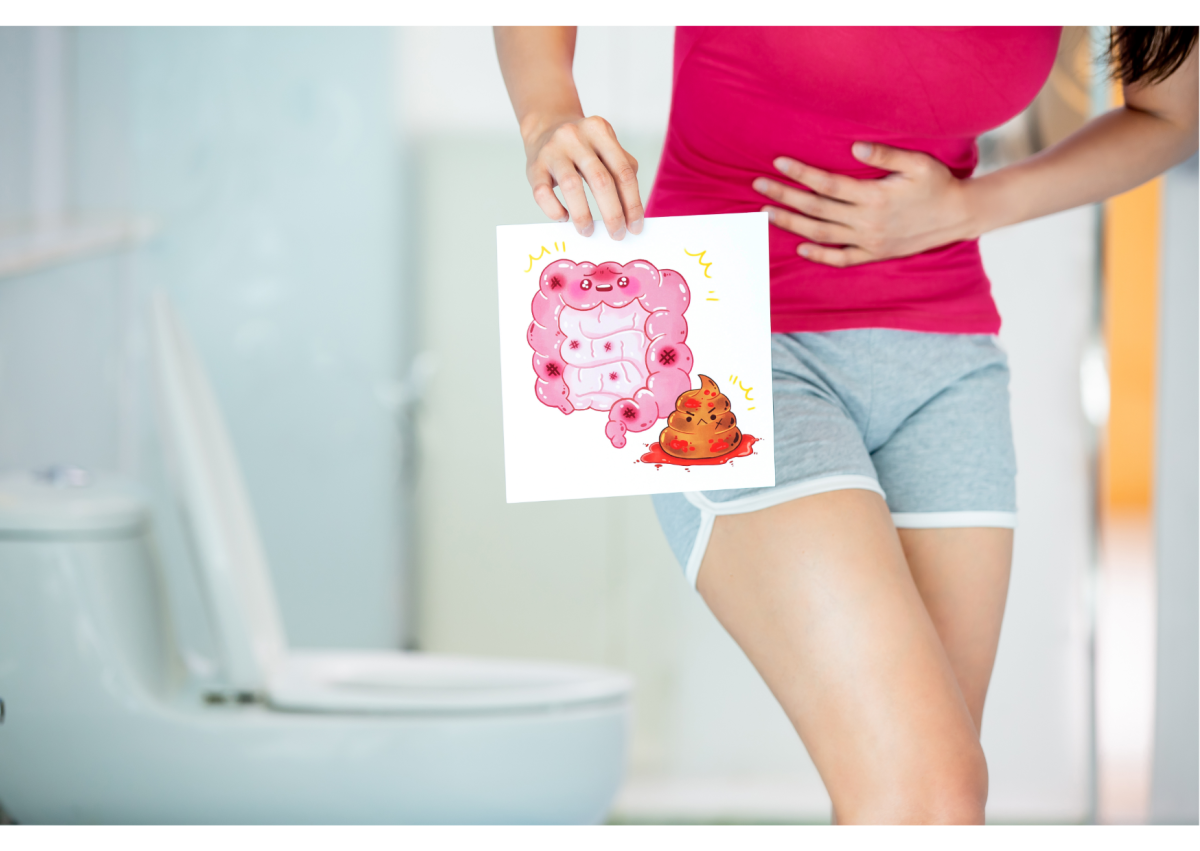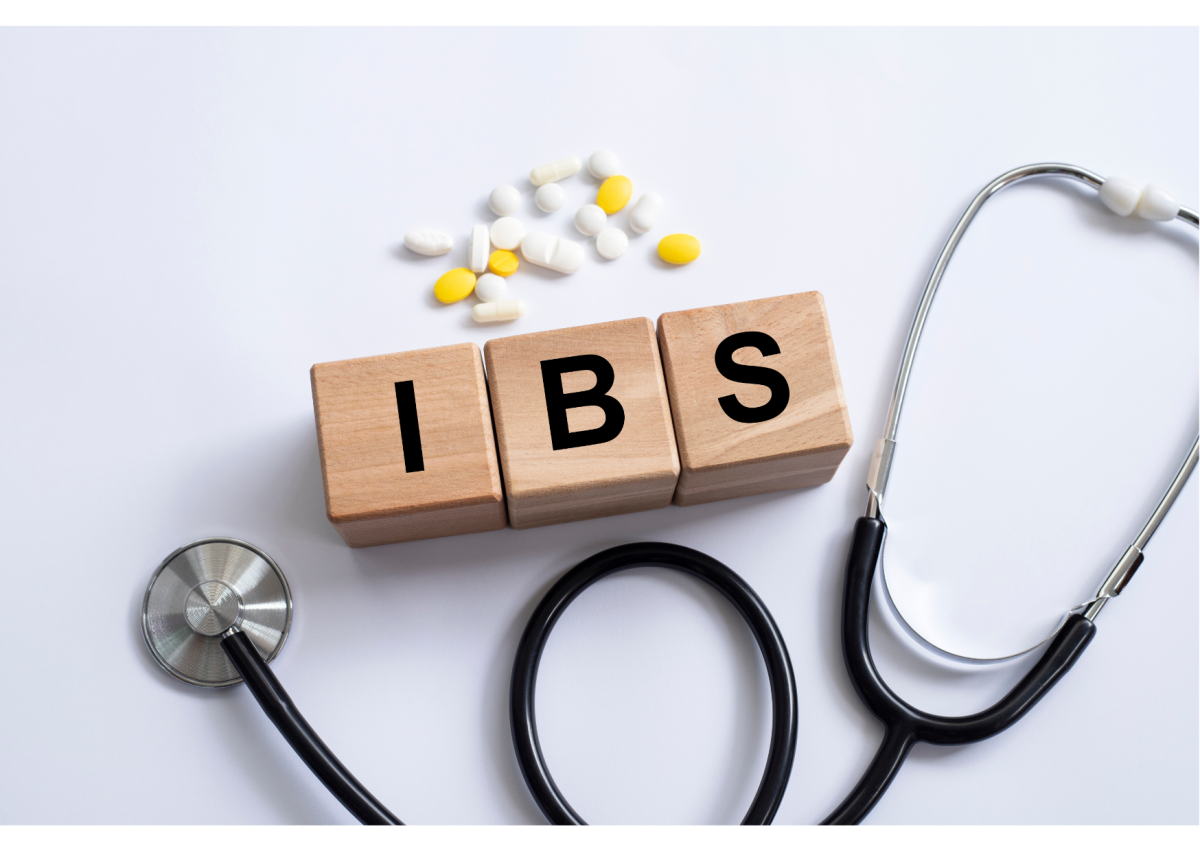Blood in your stools – could it be linked to IBS?
- Lifestyle Advice
Did you google “IBS blood in stool?”. This article is for you if suffer from IBS and have blood in your stool or blood on wiping,
In this article, we explore whether IBS causes blood in your stools and the possible causes of blood in your stools with IBS.
We also touch on mucus in your stool with IBS, as well as whether IBS can cause hemorrhoids to bleed.
Please note that this article does not replace professional medical advice. Please always consult a doctor if you have blood in your stool.

Can you have blood in your stool with IBS?
It is important to note that blood in your stool is not a symptom of IBS and should always be investigated by a medical professional.
For more detail on IBS symptoms, see our post The symptoms and causes of IBS.
IBS is a functional bowel disorder, meaning it does not cause physical damage to the digestive tract, and so does not result in any bleeding in the digestive tract (1).
When you have IBS, blood in your stool could be caused by multiple conditions, some easily treated and some requiring more serious intervention.
We will explore these conditions below.
What digestive conditions cause blood in stool?
IBS does not cause blood in stools, however other digestive conditions can.
Inflammatory bowel disease (IBD), which causes inflammation along the gastrointestinal tract, can result in blood in stools (2).
For more information on IBD, see our article on The difference between IBS and IBD.
Blood in your stools is also a symptom of colorectal cancer (3).
See our article on IBS and Colorectal cancer (yet to be published but insert here when is), for more information on this topic.
Diverticular disease, where small pouches or sacs (diverticulum) form in weak spots of the bowel, can also lead to blood in your stools (4).
This bleeding occurs if the diverticulum bleeds (5).
Hemorrhoids can also be a common cause of blood in stools.
Hemorrhoids are more common in people with IBS compared to the general population (6).
Stomach ulcers can also bleed and lead to blood in your stools (7).
If you are experiencing blood in your stools, it is much more likely to be a hemorrhoid rather than more serious conditions such as IBD or colorectal cancer.
However, it is best to get this checked out to rule out other more serious conditions.
Can IBS cause hemorrhoids to bleed?
Hemorrhoids, also known as piles, are enlarged blood vessels that develop in the rectum or anal region (8).
IBS may cause hemorrhoids to bleed due to the extra pressure placed on the rectum caused by straining to make a bowel movement and sitting on the toilet for extended periods.
Hemorrhoids are usually easy to treat and are not life-threatening. For more information, see our article on IBS and hemorrhoids.
Does IBS cause mucus in your stool?
Mucus, a fluid produced by mucous membranes, is important for a healthy digestive system as it protects and moistens the lining of the digestive tract.
Mucus in your stool is a common symptom for those with IBS. It is generally not something to be worried about (9).
You should seek medical advice only when excessive mucus or mucus with blood is present in your stool.

Stool color – how to tell when you have blood?
You may be wondering if IBS can cause bright red blood or dark blood in your stool.
As discussed, IBS does not cause blood in stools.
However, the color of the blood you see can sometimes indicate roughly where the bleeding may be coming from.
Bright red blood in your stools may indicate that the blood is fresh and is coming from the lower end of your digestive tract, including the rectum, anus, or at the lower end of your colon.
Bright red blood in your stool could also be caused by medications such as blood thinners, including warfarin (10).
Dark-colored blood could indicate that the blood in your stools is coming from further up in your colon or digestive tract, including the stomach.
A dark-colored stool can also be caused by medications such as iron tablets. Certain foods can also cuase this such as beetroots, blueberries and even blue food dye (11).
How to stop IBS bleeding?
As discussed, the bleeding is not caused by IBS directly. The first step is to go to your doctor to identify the cause.
Once a diagnosis has been confirmed, then effective treatment for that condition can be started.
However, if a hemorrhoid causes your bleeding, it is likely that your IBS is making this worse or has caused the hemorrhoid in the first place.
Both constipation and diarrhea can worsen hemorrhoids.
To help with this, see our articles:
You could also consider working one-on-one with a specialist IBS dietitian to get personalized advice for IBS and hemorrhoids.
Summary
If you suffer from IBS and have blood in your stool or blood on wiping, you should always get this checked out by a doctor.
There are multiple causes of blood in stools when you have IBS. These include less severe causes such as hemorrhoids, stomach ulcers, and medications.
There are also more serious causes of blood in stools, including inflammatory bowel disease and colorectal cancer.
The color of the blood in your stools may be an indicator of where the blood may be coming from in your digestive tract.
If hemorrhoids cause your bleeding and you suffer from IBS, strategies to manage your IBS can help to alleviate this.